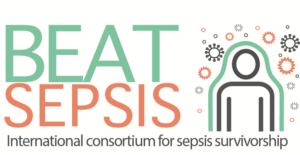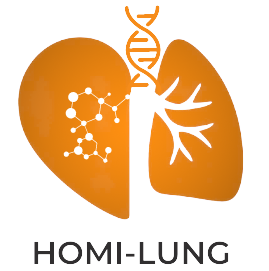ENT1DEP is one of 9 projects funded under the same topic HORIZON-HLTH-2023-DISEASE-03-07 – Relationship between infections and non-communicable diseases. All projects funded under this call and topic focus on elucidating and providing a better understanding of causative links between infections and non-communicable diseases onsets, and/or the impact of infections on the exacerbation of existing NCDs or vice versa, in children and/or adults. The analysis of genetics, immune status, immune or inflammatory responses, microbiome, lifestyle and/or other relevant factors (e.g. differences in age, sex/gender, vaccination status, ethnicity) should be integrated to get information for prevention, early diagnosis, risk factors, and to better understand causative links as well as the progression of those non-communicable diseases.
The sister projects

BEATsep
BEATsep aims to define markers of poor recovery of patients after sepsis and septic shock. This will be achieved through the discovery of novel mechanisms and their markers predicting the decline of health-related quality of life after sepsis.

BEHIND-MS
BEHIND-MS aims to understand how Epstein-Barr virus promotes multiple sclerosis development by mapping interactions between the virus, immune system, and brain cells. This will lead to new diagnostic, preventive and therapeutic tools.

CLARITY
CLARITY aims to identify genetic risk factors and mechanisms linked to severe bronchiolitis induced by respiratory syncytial virus in infants, by using AI to analyse data and identify alterations in cellular, molecular and physiological processes.

COMMUTE
COMMUTE aims to estimate the risk of neurodegenerative disorders comorbidities after COVID-19 infection and understand the comorbidity between COVID and neurodegenerative disorders at the mechanistic level.

EBV-MS
EBV-MS investigates the link between Epstein-Barr virus (EBV) infection and the development of multiple sclerosis (MS), to determine why some infected individuals develop MS, and to explore whether targeting EBV could prevent or improve the course of MS.

Homi-lung
Homi-lung investigates the relationship between cardiovascular disease progression and the immune and microbiome changes after pneumonia, thus enabling early identification of at-risk patients, and developing new treatments.

ID-DarkMatter-NCD
ID-DarkMatter-NCD aims to unravel the complex interplay of infectious diseases, genetic, and environmental factors in triggering immune related non-communicable diseases by following a multi-disease and multi-omics approach.
POINT
POINT aims to mitigate long-term COVID-19 health risks through biomarkers and a virtual twin model. It explores links between COVID-19’s post-acute phase and non-communicable diseases, develops predictive tools, and creates standardized healthcare guidelines.